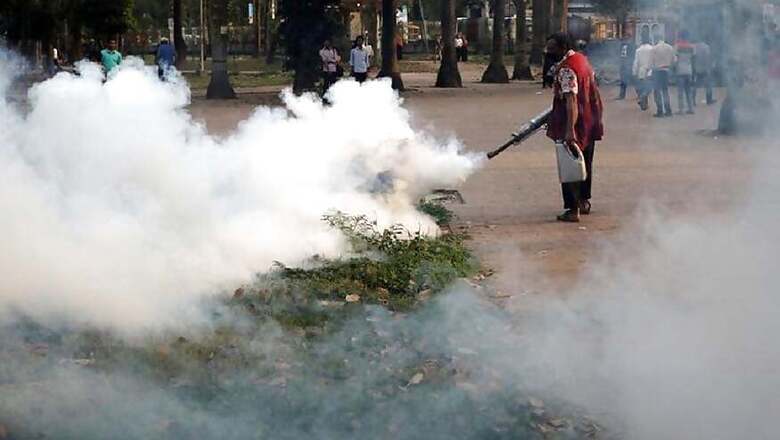
views
As Delhi’s Chief Minister pledges to put forward a tough fight for monsoon diseases by encouraging people for ‘10 hafte, 10 baje, 10 minute’ campaign, the country’s capital has also noticed an improvement in its fight against mosquito-borne diseases, including malaria, dengue, and chikungunya.
All the vector-borne diseases, including malaria, dengue, zika, and chikungunya, are caused by mosquito bites, which usually breed in stagnant water. While the diseases are not fatal in general, the untimely treatment and inadequate medicine might claim the lives of many. While Delhi has not eradicated the mosquito-borne diseases, it has been successful in decreasing the number of cases.
In the recent development, the official statistics by the New Delhi Municipal Corporation has revealed that the cases of vector-borne diseases, including Malaria, Dengue, and Chikungunya, in the areas under the NDMC have gone down in the last three years. Additionally, as per the data available with the civic body, the number of challans and notices issued for mosquito breeding has also seen a downward trend since 2017.
In her statement, Rashmi Singh, NDMC Secretary revealed, “While 41 cases of malaria were reported in NDMC areas in 2017, the number of cases in 2018 and 2019 are 31 and 24, respectively.
Similarly, the numbers of dengue cases in three years were 61, 9 and 3 while the Chikungunya figures were at 3, 0 and 1, respectively.”
The data available with the NDMC has the record of the number of cases registered till August 31 in last three years. While, in 2017, the civic body had issued 2,979 notices for mosquito breeding, it went down to 2,241 and 2,203 in the subsequent years. Also, the places which were issued notices this year included Paryavaran Bhawan, Rajiv Gandhi Bhawan Lady Hardinge Hospital, besides other government offices, hospitals, and schools.
The number of challans issued in 2017 was 291, while only 69 challans have been issued this year. Rashmi explained, “We have made sustained efforts in respect of prevention and control of dengue and vector-borne diseases. We had made teams which inspected over 3.70 lakh premises including residential and non-residential complexes and checked them for mosquitogenic conditions. Over 1,000 of them were found positive in being a breeding ground for mosquitoes. Fogging was done in over 22,000 buildings.”

















Comments
0 comment